Quote:
| Seattle Underground Seattle has a fascinating underground district that’s more well-known than most others. Pioneer Square was the birthplace of Seattle; the district was built on filled-in tidelands in the very early days of the city. After 25 city blocks were destroyed in the Great Seattle Fire of 1889, Seattle officials made two important decisions: all new buildings must be made of stone or brick, and the rebuilt area would be one to two stories higher than the original buildings. Quote:
Spoiler for pic: 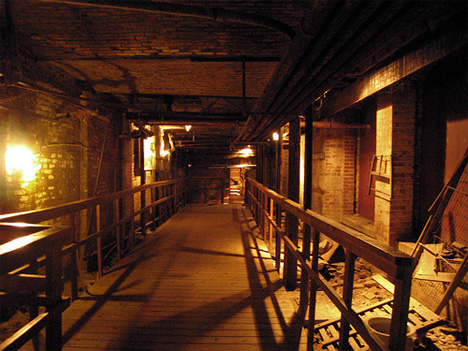 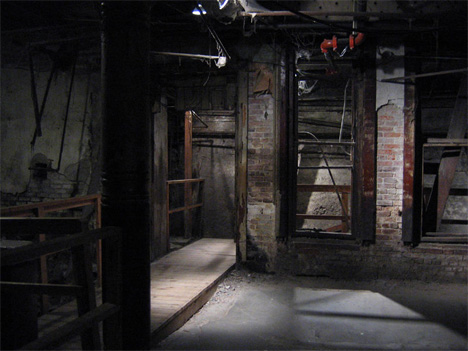 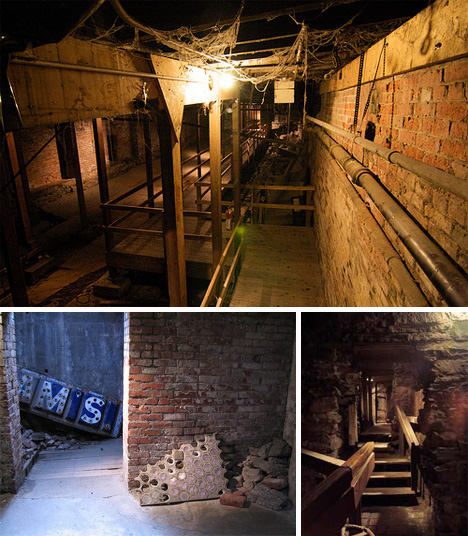 |
Quote:
| Path, Canada PATH is not only well-known; it’s openly advertised as the largest underground shopping complex in the world. While Toronto’s subterranean passageways aren’t exactly hidden or mysterious, they are still quite interesting. The origins of the network can be traced back to the early 20th century, when stores built simple underground passages to get shoppers from one location to another. Then, in the 1960s city planners decided to un-clog the crowded downtown sidewalks by moving shopping centers underground. The massive 17 mile network is almost like an entire city on its own with shopping facilities, restaurants, banks, entertainment and public transport all linked up. Quote:
Spoiler for buka: 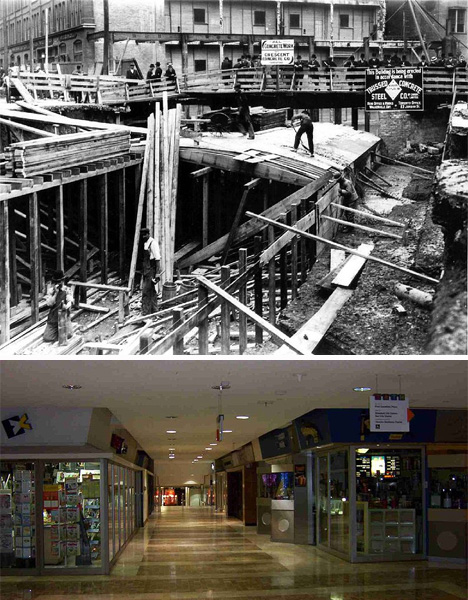  |
Quote:
| Double Dekker city, Canada Montreal boasts its own substantial underground area known as RESO. It is said to be the largest underground complex in the world at over 4.6 square miles. Taking shops and public transit link-ups underground helps to keep travelers out of the often-harsh Quebec weather, and the complex is also an important destination for many tourists. But permanent residents of the city tend to see the subterranean network as just another part of Montral. Quote:
Spoiler for buka: 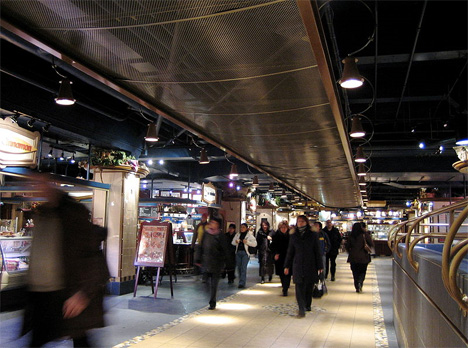 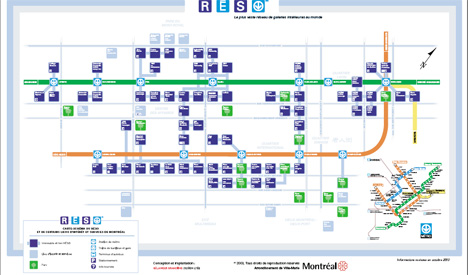 |
Quote:
| Another record-setting underground space is SubTropolis, a huge former limestone mine resting beneath the ground of Kansas City, Missouri. Occupying 55 million square feet, the man-made cave is what was left over after a 270-million-year-old limestone deposit was mined out of the area. The resulting space is climate-controlled, protected from the elements and stable enough that the USPS rents space there. With offices, storage and industrial outfits occupying the rental units, SubTropolis’ owners have trademarked the phrase World’s Largest Underground Business Complex. Quote:
Spoiler for buka:   |
Quote:
| [center]Coober Pedy, South Australia It’s not always economics that drive a city to build underground. Coober Pedy residents choose to live underground to escape the brutal daytime desert heat of the world above ground. Most locals choose to live in “dugouts,” or underground homes literally dug out of the landscape with picks and shovels. Digging out an underground home in the town costs about the same as building an above-ground one, though since the town is known as the opal capital of the world there have been plenty of reports of diggers paying for the entire cost of their new home with opals they find during the digging process. Quote:
Spoiler for buka: 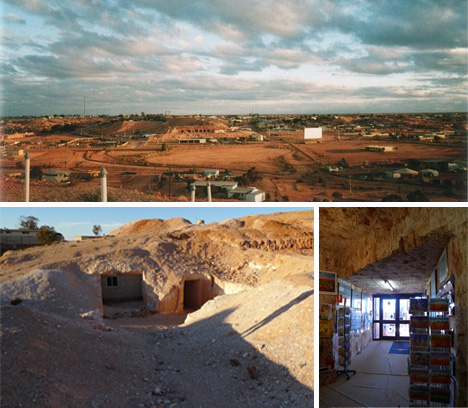 |
Quote:
Cappadocia, Turki
Like the residents of Coober Pedy, the people who settled what is now called Cappadocia, Turkey retreated underground due to the nature of the land. There was little to build with in the area, so residents simply carved homes out of the stone. The cave-like homes have existed for thousands of years and passed between many countries’ hands, but they have remained strong and sturdy.
Like the residents of Coober Pedy, the people who settled what is now called Cappadocia, Turkey retreated underground due to the nature of the land. There was little to build with in the area, so residents simply carved homes out of the stone. The cave-like homes have existed for thousands of years and passed between many countries’ hands, but they have remained strong and sturdy.
Quote:
| Seperti penduduk Coober Pedy, orang-orang yang menetap apa yang sekarang disebut Kapadokia, Turki bawah tanah karena sifat tanah mundur. Ada sedikit tempat untuk membangun dengan di daerah tersebut, sehingga penghuni rumah hanya diukir dari batu. Rumah-rumah gua-seperti telah ada selama ribuan tahun dan melewati antara tangan banyak negara, tetapi mereka tetap kuat dan kokoh. |
Spoiler for buka:
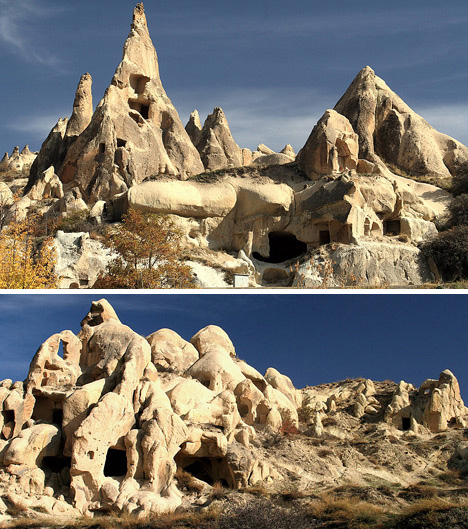

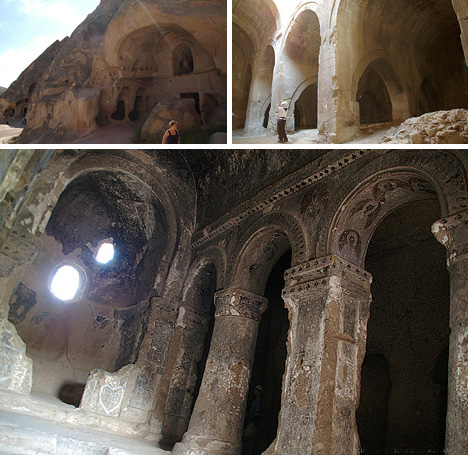
Daerah ini telah menjadi objek wisata yang sangat populer, dengan sebagian besar ekonomi yang berbasis pada pengunjung. Kota yang menakjubkan ini harus memberikan inspirasi bagi para perencana kota modern-hari: ruang bawah tanah yang dipengaruhi iklim memerlukan sangat sedikit untuk tetap nyaman dan telah terus berdiri selama masih ada banyak tempat lainnya di Bumi.
***PELUANG USAHA AROMANIS***
bahan yang digunakan adalah lah gula pasir dengan perbandingan 1 kg gula mampu menghasilkan 30 – 40 kantung harum manis besar dengan harga jual Rp.5000/kantung.
modal untuk 1 kg gula
1 kg gula Rp. 8.800,- ( harga sewaktu-waktu bisa berubah)
gas elfiji Rp.2000.- ( cuma sedikit)
plastik Rp. 5.000,-
jadi jumlah modal untuk membuat gulali dari 1 kg gula adalah Rp. 15.800,-
1 kg gula = 35 kantung ( kita ambil tengahnya saja)
dengan harga jual Rp. 5.000,-/kantung
25 X 5.000 = Rp. 125.000,-
jadi ,
125.000 - 15.800 = Rp. 109 .0200,-
maka keuntungan yang akan diperoleh dari 1kg gula
adalah Rp. 109.200,-
sumber: http://mesinaromanis.blogspot.com/